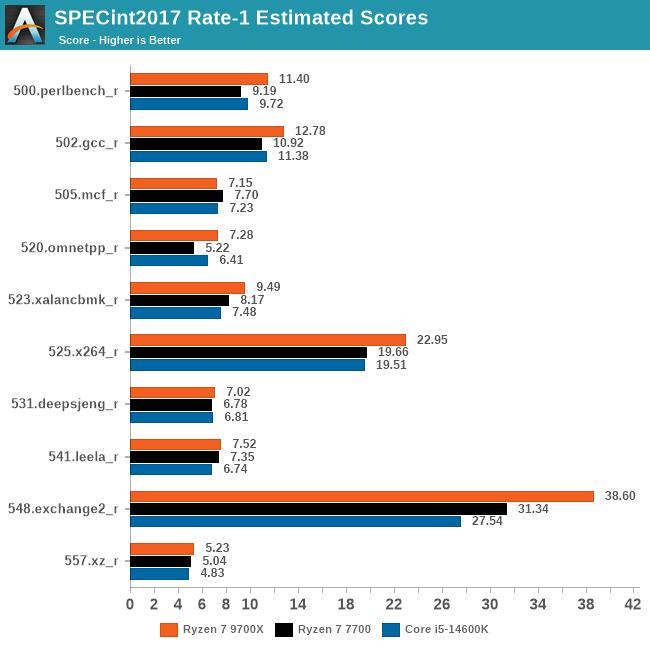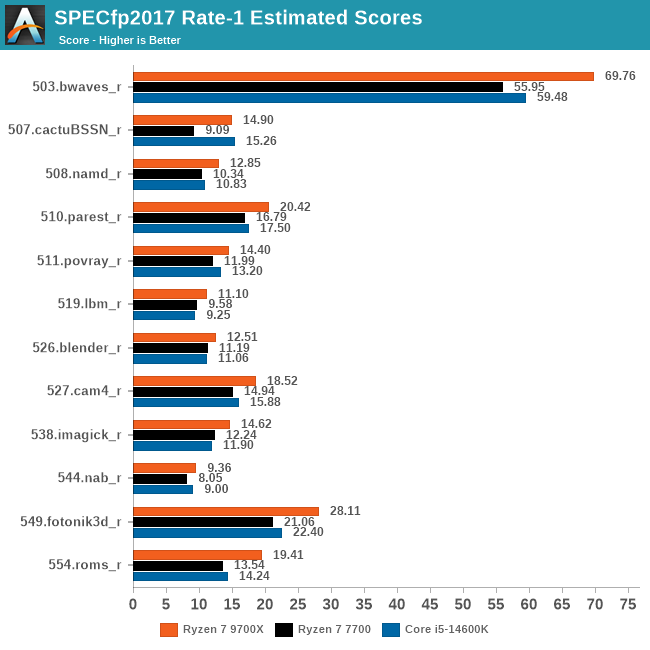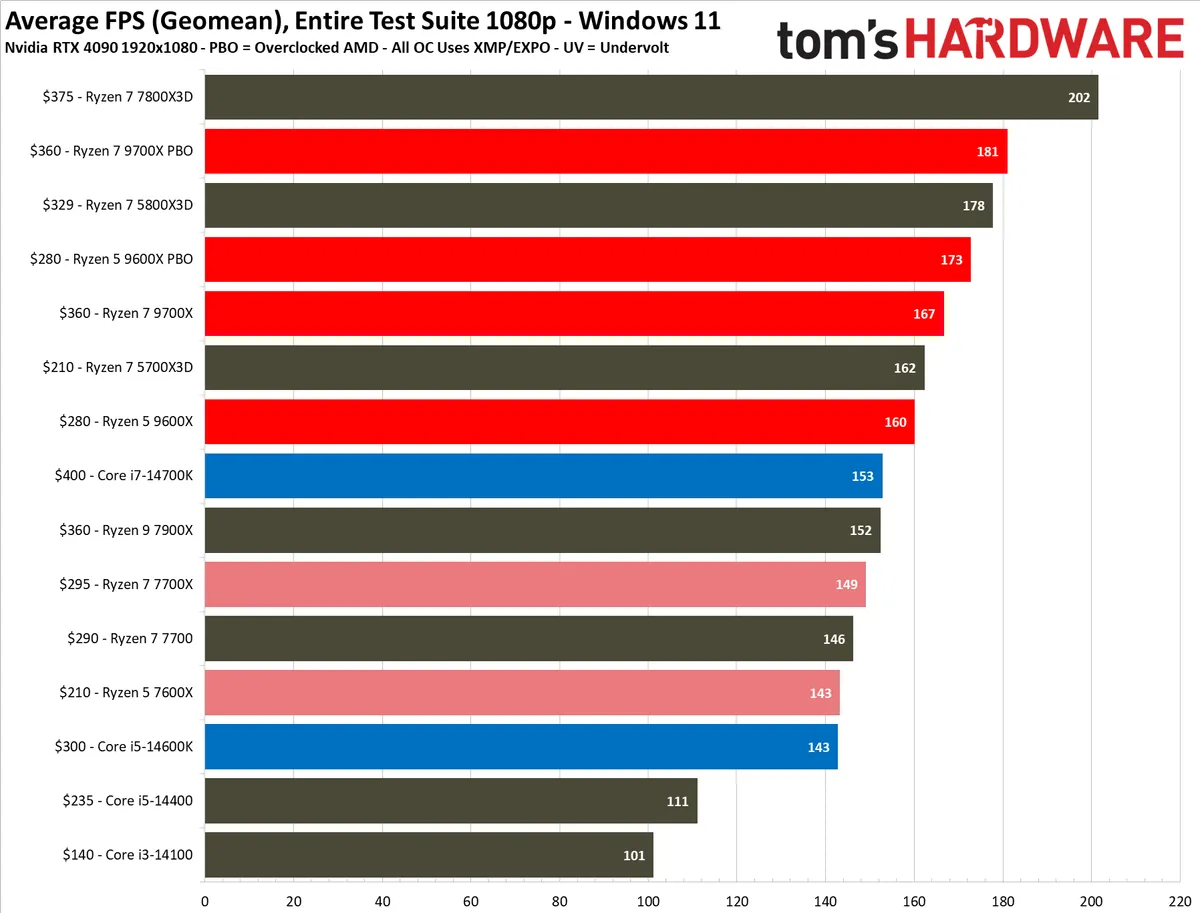Recap: We got our first look at AMD's new Ryzen 5 9600X and Ryzen 7 9700X processors last week, and it's fair to say we weren't impressed with what we saw. That said, online reviews were very mixed, despite reporting similar performance data overall. There were minimal gains in games, with mixed productivity performance. But that mixed reception from reviewers left readers confused, with many asking the question: Are these new Zen 5 processors good or bad? It's a fair question, and the answer is, as usual, "it depends."
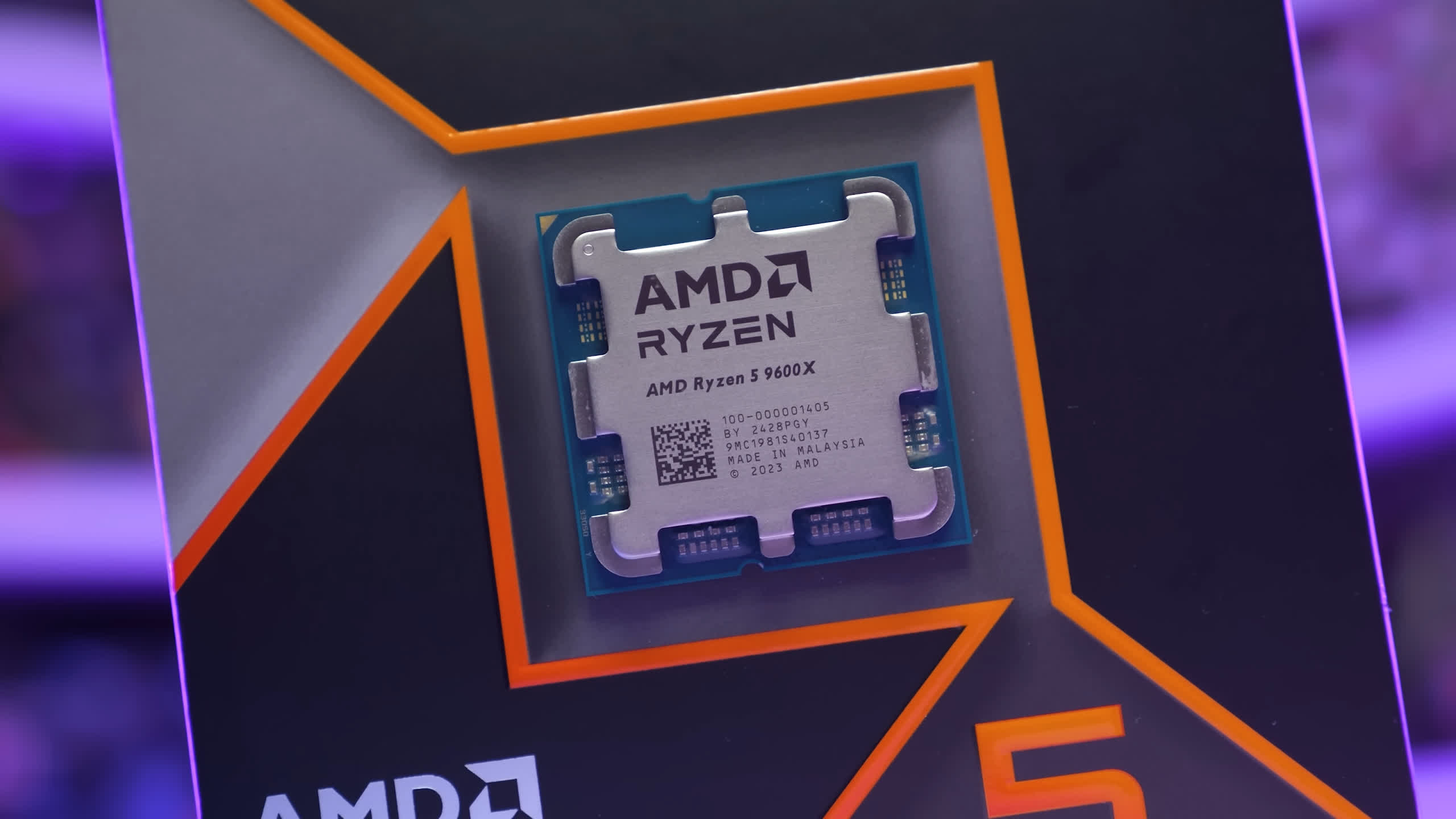
Zen 5 reviews that focused primarily on server workloads, development software, and AI-type benchmarks found Zen 5 to be generally excellent, often offering good performance gains over Zen 4 with improved power efficiency. However, reviews that focused on gaming and more typical desktop productivity workloads, such as video editing, found Zen 5 to be extremely underwhelming.
There was also some confusion about just how efficient Zen 5 is for these tasks when compared to Zen 4. We will be addressing that in this article, along with a range of other Zen 5-related misconceptions.
The Zen 5 architecture wasn't designed with gaming or general desktop usage in mind. AMD developed it for Epyc server processors, which is why server and development workloads generally saw impressive gains.
In a nutshell, the Zen 5 architecture wasn't designed with gaming or general desktop usage in mind. AMD developed it for Epyc server processors, which is why server and development workloads generally saw impressive gains. However, AMD has still heavily marketed Zen 5 towards gamers. They absolutely want you to buy it, and they made several gaming-related performance claims that simply weren't true, hence our disappointment with the product.
For example, during their tech day, AMD provided official slides claiming that the 9700X offered gaming leadership over the 14700K, with 13% better performance on average. In the same slide, they also showed much better productivity performance – up to 42% greater performance in Handbrake – none of which turned out to be true.
Slide from AMD's Zen 5 Tech Day
By setting the wrong expectations with gamers, AMD ultimately set Zen 5 up to fail. It's been hard for many, especially those who are fans of the AMD brand, to accept that Zen 5 has been a major disappointment for gaming.
As a result, we've seen endless claims of 40% efficiency gains, which simply aren't true. We've heard that if you enable PBO, the 9700X is a monster, offering massive performance gains that can also be seen in games. There's a lot of confusion, and it was impossible to address all the misinformation in our initial review, as you never know how these things will be interpreted. However, we did prove in our initial review that PBO doesn't boost gaming performance, and that the 9700X isn't an efficiency monster, especially for gaming.
You can check out HUB's re-review video where I'm taking another shot at it. The data is pretty much the same, but the aim is to address the misinformation surrounding these products. Also, here's a quick FAQ to hopefully make Zen 5 a bit easier to understand from a gaming and general desktop user's perspective. So, let's get into it...
Nothing has really changed from our day-one reviews
A massive oversight in most day-one reviews was the comparison between the 105W 7700X and the 65W 9700X. Realistically, if you're going to claim big power efficiency gains you should be comparing 65W Zen 5 with 65W Zen 4. For example, in Cinebench you can see that the 9700X is just 7% faster than the 7700, that's not a big uplift for multi-core performance.
As we observed in our review, you can enable PBO and this does boost the 9700X by 9%, though it also increases power usage, and quite substantially. In fact, if we measure power draw from the EPS12V rails using the ElmorLabs PMD, we see that the 7700 and 9700X consumed the exact same amount of power, meaning that for the same power draw, the 9700X was just 7% faster. We also observe that while PBO boosted performance by an additional 9%, it increased power usage by over 70%, indicating very poor efficiency scaling.
This data also reveals why comparing the 9700X to the 7700X in terms of power efficiency is extremely misleading. The 7700X is just 5% faster than the 7700 in this test, yet it consumes 45% more power. The latest HUB video goes over more data, much of it the same, but with an additional insight as this.
In short, we have reconfirmed that for gaming and the desktop applications we tested, the 9700X generally isn't much faster than the 7700, and both CPUs generally use the same level of power.
Gaming benchmarks across reviews
A comment we saw several times on our 9700X and 9600X reviews went something like, "I just came from another review, and they showed much better gaming gains. What's going on there? Who's right?"
Let's address this quickly. We're not going to call out any reviews or name names; we respect the work everyone has done here. It's a crazy week getting these results done, and some media outlets didn't even have a full week. We certainly appreciate how difficult it is to get these reviews completed.
That said, we noticed a few things. The reviews that claimed stronger gaming performance gains for Zen 5 than what we showed almost always tested very few games, in some cases four or fewer, which in our opinion is unsatisfactory. At a minimum, reviewers should be testing 10 games. TechPowerUp, for example, did just that. We're naming them because they did an excellent job, so this is a highly positive recognition.
The power efficiency angle with Zen 5 is a bit insane. The 9700X looks great but you have to pretend that the 7700X isn't wildly inefficient. You also have to pretend that the 7700 doesn't exist. Don't take my word for it here's the TechPowerUp data...
– Hardware Unboxed (@HardwareUnboxed) August 8, 2024
Note the 7700 and 9700X... pic.twitter.com/TdmrymgPoq
They tested 10 games, and four of those games were also re-tested with ray tracing enabled. They found that the 9700X was on average just 2% faster than the 7700, which is very close to the 3% we observed. They also found that maximum PBO only boosted gaming performance by an average of 1%, which aligns exactly with our findings.
Shockingly, they also found that in terms of gaming efficiency, the Ryzen 7 7700 was 17% more efficient in terms of frames per watt compared to the 9700X. That's surprising but also consistent with what we found when looking at power consumption across a few of the games tested. They also discovered that PBO decreased gaming efficiency by 7%, which again aligns with our observations.
Now note that the 9700X is just 11% faster than the 7700 at the same power. It's an improvement, but it's not nearly as big as what reviews only using the 7700X have shown, not even close. pic.twitter.com/7Un3sLcP2P
– Hardware Unboxed (@HardwareUnboxed) August 8, 2024
So if you've seen a review claiming that the 9700X is significantly faster – let's say more than 5% on average – compared to the 7700 or 7700X, check how many games they tested and which games provided the outliers. We firmly believe that if you test a dozen games or more, as we did, you'll find the same low single-digit gains overall.
AMD's own benchmark data confirms our results
On that note, AMD finally updated their review guide to include the 7700X, and they found that on average, across the 23 games tested, the 9700X was just 5% faster. Oddly, however, of the 23 games AMD used, only three titles were released in the last two years. We were really surprised to find that AMD-sponsored titles such as Starfield weren't included in AMD's own data, but given our results, we can probably guess why they skipped it.
The takeaway here is that AMD's own internal testing found the 9700X to be, on average, just 5% faster than the 7700X, and we believe their data to be heavily cherry-picked. So if any review is claiming well over a 5% average gain, they probably need to re-evaluate the list of games they tested.
PBO, 20% gains, really?
Let's shift gears and talk about PBO, and we're going to blame our German friend 'der8auer' for this mess. Haha, well, not exactly. Der8auer does excellent work and is highly respected in this field. The problem here was people jumping to conclusions without fully watching and absorbing the content.
You see, der8auer titled his video saying the 9700X is very efficient, which we don't completely agree with, but it's not wrong either – it highly depends on the workload. Der8auer also claimed that the 9700X is held back by power limits, which is also somewhat true, but as we've seen, not always true. Removing the power limits absolutely decimates power efficiency. That said, der8auer was only advocating for a 10-20W increase, as he thought this might help the 9700X distance itself from the 7700X, which would better justify the price – all of which is very reasonable.
The thing is, it's quite difficult to convey all the nuances of this topic in a YouTube title, so again, der8auer isn't wrong here. The problem is people being lazy or worse, deliberately deceptive because they want to spin a certain narrative.
Claiming you have to enable PBO to fully unleash the 9700X is a white lie. Der8auer showed that for certain workloads, PBO can provide massive performance gains, in the realm of 20%, which is impressive. However, he also showed that for 20% more performance, you have to consume 80% more power, so there goes your efficiency. He also showed multiple examples where PBO does nothing for gaming, and he was very clear on this. In fact, he tested PBO in four games and found an average 1.5% performance increase, which aligns very much with our own testing.
65W TDP, power efficiency
On the topic of power efficiency, almost all reviewers got it wrong, and in a way, you can include us in this. The mistake was comparing the 65W 9700X and 9600X with 105W Zen 4 parts and then claiming Zen 5 is very efficient, or "phenomenally efficient," as at least one reviewer claimed. Thankfully, we didn't make those claims, but our original reviews did omit the 65W Zen 4 parts, which we have since included in the re-review.
Please note there is an error in our video, we're using the wrong footage for showing how the 9700X behaves in CB. This is the correct graph (it doesn't change much).
– Hardware Unboxed (@HardwareUnboxed) August 7, 2024
Please note I've also added the 7700, the 7700X was never an efficient part. If you compare with the 65w 7700… pic.twitter.com/m8d1T5uggZ
We were quick to pick up on this mistake, noting it on Twitter and issuing a correction in our 9600X review, which was released a day after the 9700X review. We were also mindful of the 65W Zen 4 parts in our original review, and knowing that they are significantly more efficient than the 105W parts, we didn't make a big deal out of the Zen 5 improvements, knowing they wouldn't stack up nearly as well against the non-X parts like the 7700 and 7600.
Daniel Owen, Am I Crazy?
Another YouTuber, Daniel Owen, picked up on the 65W vs. 105W issue after our 9600X review went live, noting the concerns we raised, but he also made his own keen observations that most reviewers missed. So, credit to Daniel on this one.
The 9700X is a 65W part, so it makes sense to compare it with the 65W Zen 4 counterpart, the 7700. When you do so, you realize a few things. As we've already discussed, the 9700X doesn't look nearly as efficient. But Daniel also pointed out that the MSRP of the 9700X hasn't actually been lowered; we've all been fooled.
That's because while the 7700X launched at $400, the 7700 arrived three months later at just $330, which is $30 less than the 9700X MSRP. But worse, the 7700 came with the Wraith Prism box cooler, meaning you didn't need to spend any additional money on a cooler if you didn't want to. The 9700X, on the other hand, doesn't just cost $30 more at MSRP, but it also does away with the cooler – there's no box cooler at all. This means the 9700X is even worse value than we originally thought.
Zen 5 overclocking memory support: It's not better
Another bit of misinformation circulating in the comments section of Zen 5 reviews has to do with memory support. Apparently, some reviewers tested with DDR5-6400, claiming this is the new sweet spot for Zen 5, but that isn't true, and we're not sure why this was ever claimed. AMD was very clear in their review guide that Zen 5 memory support is exactly the same as Zen 4 – there are no improvements here.
AMD also stressed that the maximum Infinity Fabric speed that most Zen 5 CPUs will handle is 2,000 MHz, the same Fabric speed as Zen 4. So going beyond 2,000 MHz means you'll be playing the silicon lottery. We expect quite a few chips will do it and remain stable, but there will also be plenty that won't.
It's also not easier to hit DDR5-6000 on Zen 5 processors. Again, memory compatibility and support at the processor level haven't changed. Motherboard BIOS support might have improved as AM5 has aged, but this is not an inherent Zen 5 feature.
It's also way too early for reviewers to make these claims, as it takes months to gather that data. Most reviews have a sample size of one, maybe two CPUs to go on, and based on that, you have no idea what general silicon quality will look like, so don't make those claims – it's misleading.
On that note, PBO, undervolting, and overclocking results are also highly silicon-dependent, so while you might see great results from a single chip, that cannot be extrapolated to all Zen 5 chips. The silicon lottery is very much a thing when considering those tweaking and tuning angles.
DDR5-8000
While we're talking memory, Zen 5, like Zen 4, can run at up to DDR5-8000, but doing so is pointless as performance is generally the same as DDR5-6000. This is because you have to decouple the integrated memory controller and memory frequency, which increases latency.
Generally speaking, the bandwidth DDR5-8000 provides is enough to overcome this, but as a result, performance remains much the same. You might see bandwidth-sensitive examples where 8000 is faster, but you'll see more examples where it's slightly slower. Overall, performance will be much the same. Therefore, just get the cheaper DDR5-6000 memory.
800 series motherboards: Will they be faster? New BIOS?
Another question we've seen a lot of you asking is, will the upcoming 800 series motherboards improve the performance of Zen 5? Although we haven't tested with those boards, we can tell you the answer will be 'no.'
Performance between 600 and 800 series boards will be identical. Memory support won't change either; the limit there is the CPU's memory controller, not the motherboard's, at least not on the good boards.
Is Zen 5 a Flop? The future
Is Zen 5 in the form of the 9700X and 9600X a "flop" as we put it last week? For gamers, absolutely. You're not getting any real efficiency gains – not that gamers care deeply about efficiency gains unless they're truly massive – and performance overall is much the same. So after two years, you're faced with paying a 20% or greater price premium for the same performance. That's not good; in fact, it's really bad.
That said, at some point in the future, it's very possible we will be recommending Zen 5 processors, depending on how Intel's Arrow Lake series plays out. What we mean is, we expect at some point in the future the Ryzen 7000 series will be phased out, and Ryzen 9000 parts will drop in price. At that point, sure, they'll be the option on AM5, and at that time, they could very well be the best option.
That still doesn't change the fact that the AM5 platform hasn't seen a good step forward after two years; it just means that Zen 5 will have filtered down to replace Zen 4. Right now, though, you shouldn't even have the 9600X or 9700X on your radar – just get the Zen 4 equivalent, because for desktop work, they're basically the same thing at a much better price.
Our benchmarks are enthusiast and gaming focused
Lastly, we want to point out the obvious: TechSpot and Hardware Unboxed are aimed at enthusiasts and PC gamers. You won't find us running a single 40-application benchmark here, but you will find countless big 40+ gaming benchmarks comparing various CPUs and GPUs.
That being the case, it should make sense that we review new CPUs from the perspective of a gamer, with some general desktop productivity mixed in, but the focus is really on gaming. Don't come to us for Linux-based server benchmarks, or development and AI benchmarks – we've rarely done that, and we can't imagine we'll ever move there.
Coming here and expecting that sort of content is like going to a basketball game and being confused why everyone is excited to see a basketball game and not cricket. They're two different things. Of course, you can be interested in both sports, just as you can be interested in both server and gaming benchmarks, but we're just playing one sport here. We're not playing basketball with a cricket bat – though that does sound like fun.


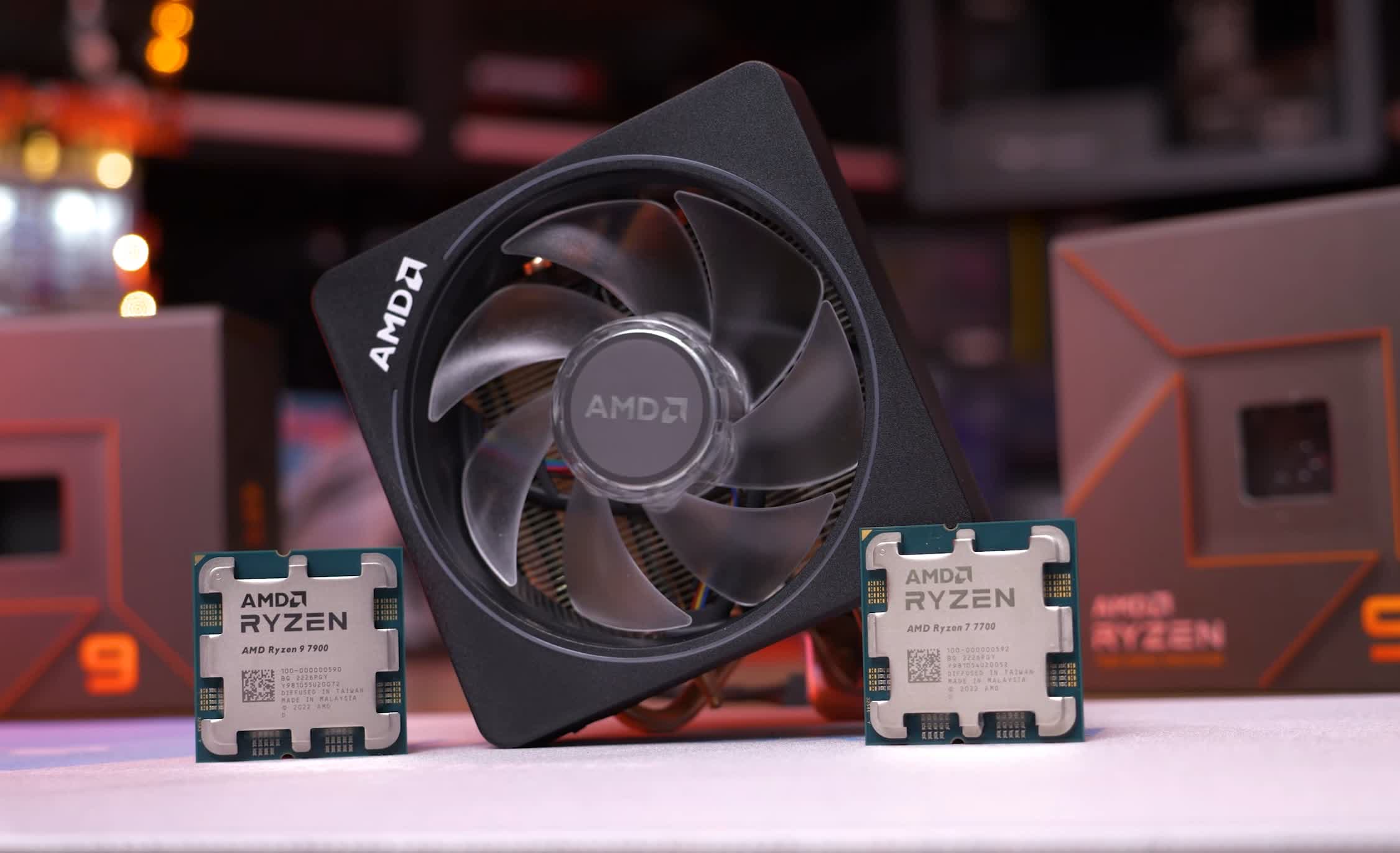

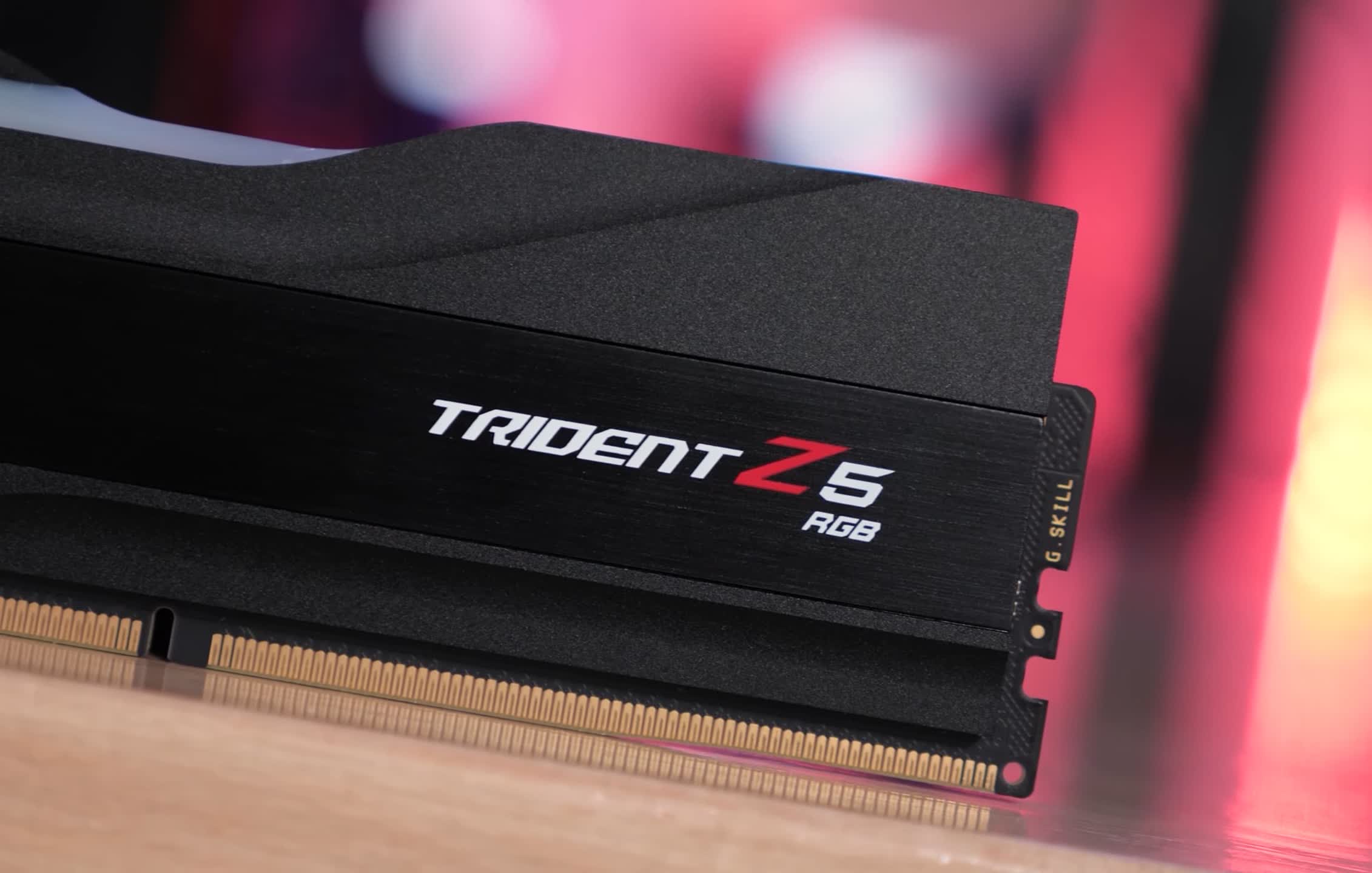
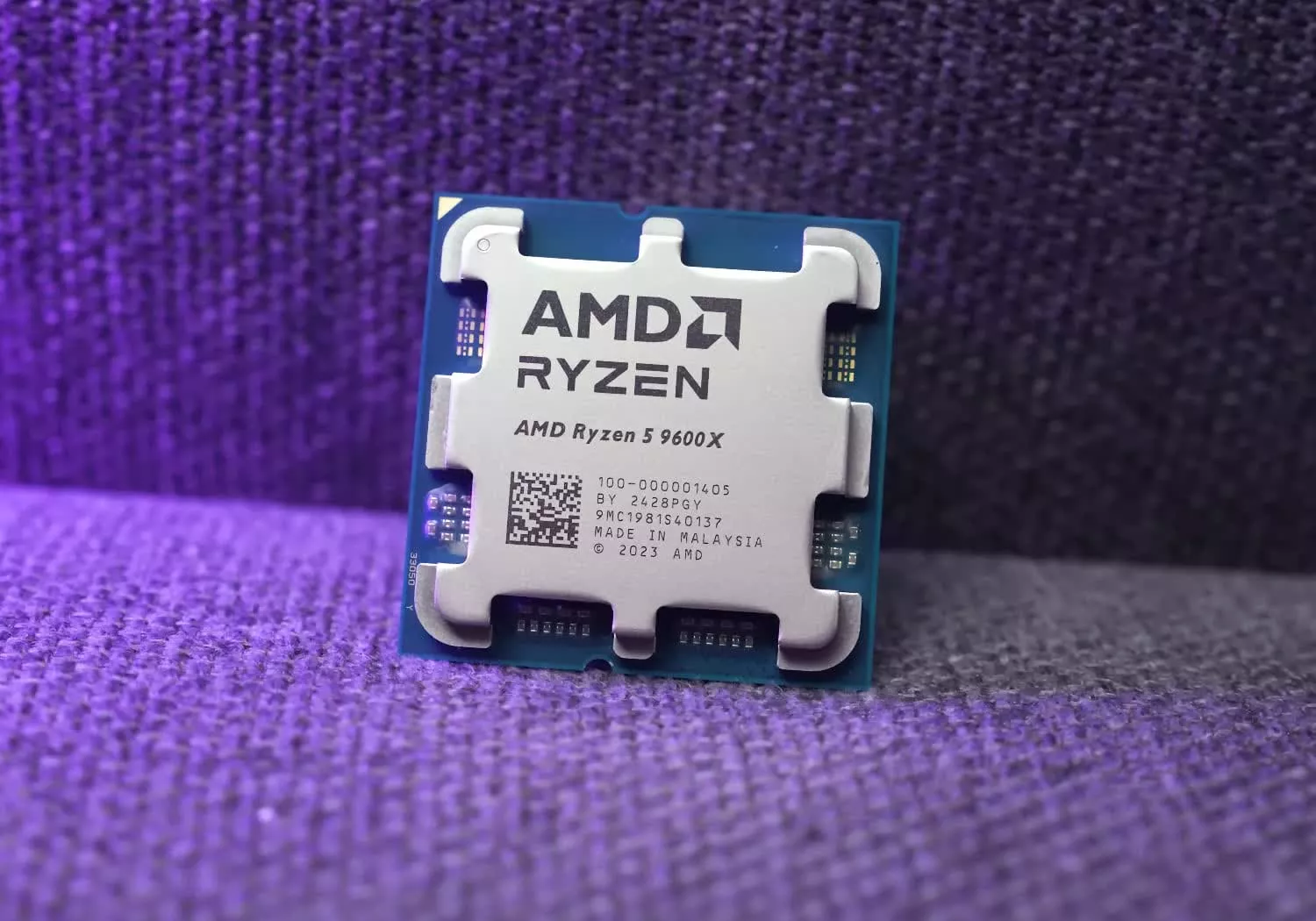
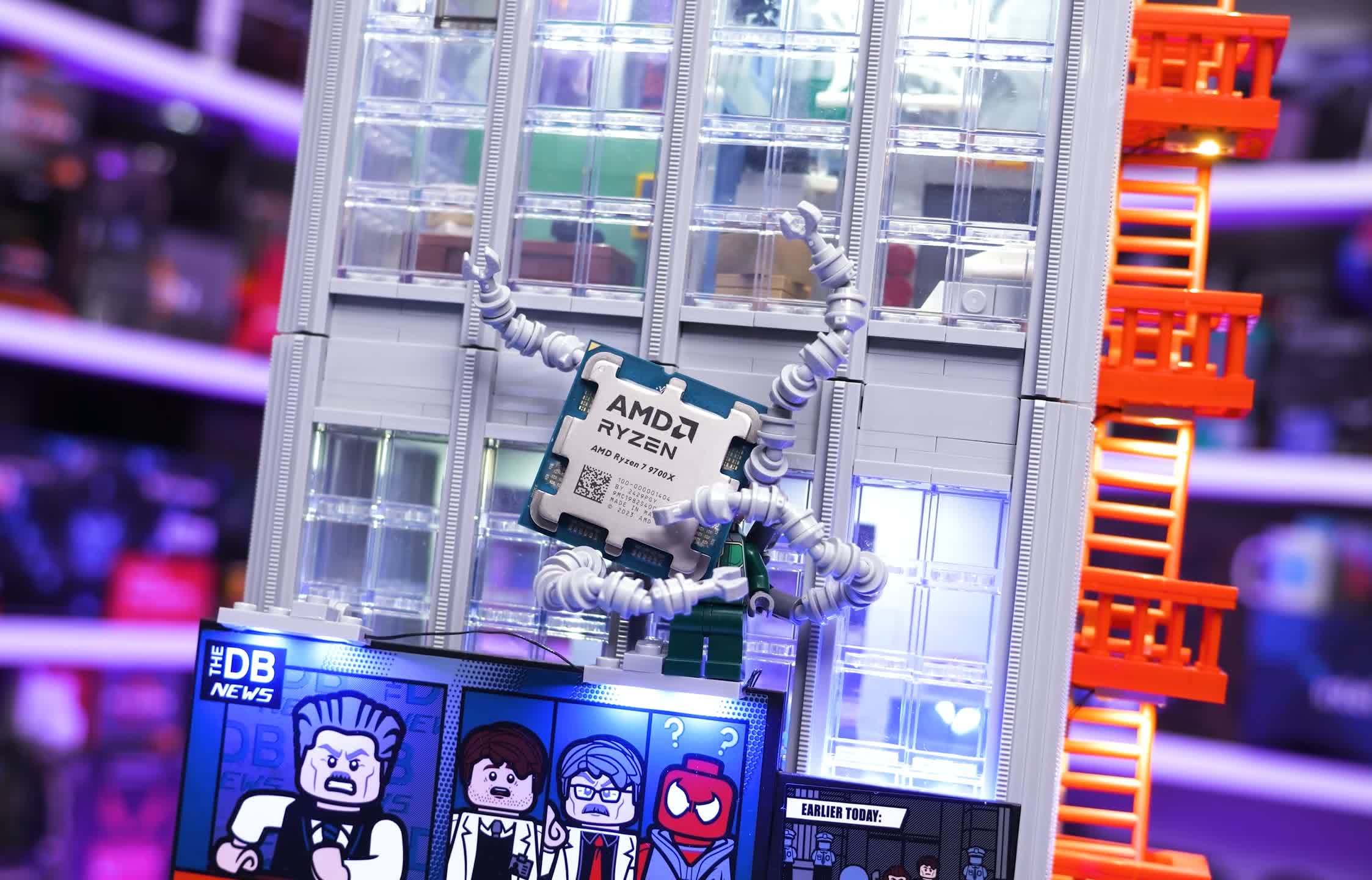
 Test with same games and same settings AMD did. If results are very different, then AMD lied.
Test with same games and same settings AMD did. If results are very different, then AMD lied.